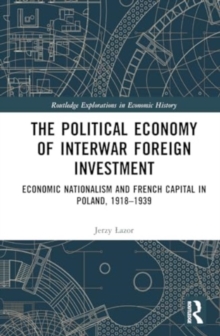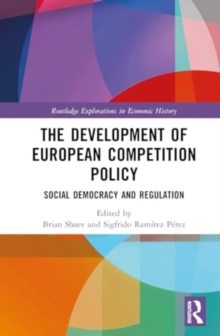
Inequality and Nutritional Transition in Economic History : Spain in the 19th-21st Centuries EPUB
Edited by Francisco J. Medina-Albaladejo, Jose Miguel Martinez-Carrion, Salvador Calatayud
Part of the Routledge Explorations in Economic History series
EPUB
Description
Food consumption and nutrition are historically among the most characteristic features of inequality in living standards driven by socioeconomic, gender, generational and geographical reasons. Nutrition directly impacts mortality, life expectancy, height and illness and thus becomes a good indicator of living standards and their evolution over time. However, one issue that remains unresolved is how to measure past diet inequalities with the available sources.
This book evaluates nutritional inequalities in Spain from the nineteenth century to the present day. It explores the socioeconomic, gender, generational and geographical variations in food consumption and nutrition in Spain during this period. Deriving historical data on nutrition and diet has always been difficult due to issues with available sources. This book adopts a multi-dimensional approach and two complementary methodologies capable of presenting a more comprehensive picture: the first analyses diets based on primary sources, while the second examines the effect of nutritional inequalities on biological living standards, with special emphasis on average height. This combination allows for greater precision than previous studies on the impacts of food inequality.
This book will be of significant interest to scholars from different academic branches, especially historians, economic historians and historians of science, economists, and also doctors, endocrinologists, paediatricians, anthropologists, nutritionists and expert in cooperation and development.
Information
-
Download - Immediately Available
- Format:EPUB
- Pages:284 pages
- Publisher:Taylor & Francis
- Publication Date:13/04/2023
- Category:
- ISBN:9781000864519
Information
-
Download - Immediately Available
- Format:EPUB
- Pages:284 pages
- Publisher:Taylor & Francis
- Publication Date:13/04/2023
- Category:
- ISBN:9781000864519










